The start of a new year comes with fresh expectations, hopes, and dreams. In 2015, Nigeria Health Watch hosted its inaugural Future of Health Conference with the theme “Defining the Health Sector of Our Dreams in Nigeria.” The newly elected President Muhammadu Buhari had just been sworn in to begin his first four-year term. This inaugural Future of Health Conference comes to mind because, among a renewed sense of optimism, talks centered on how the nation could reach universal health coverage (UHC), improve access to basic healthcare, and implement interventions that improved maternal outcomes.
As we prepare for the upcoming presidential election next month and the governorship elections in certain states that will follow, this provides a new opportunity for a policy reset, assessing how much work remains to be done to address the myriad of challenges the health sector continues to face in order to improve health outcomes.
In the health sector, some progress has been made over the past eight years. In 2018, the launch of the Basic Health Care Provision Fund (BHCPF) through the allocation of 1% of the Consolidated Revenue Fund (CRF) provided catalytic funding to improve access to Primary health care (PHC). In November of 2018, the President signed the bill for an Act to establish the Nigeria Centre for Disease Control (NCDC). The National Health Insurance Authority (NHIA) Act was signed into law in May 2022, making health insurance mandatory. However, health outcomes, like maternal mortality continue to be a concern.
So, looking ahead in 2023, in order to create the health sector of our dreams, one that every Nigerian deserves, the government must prioritise these five key areas:
1. The state of primary health care (PHC)
After he developed the first National Health Policy in 1988 and introduced the PHC model, Professor Olikoye Ransome-Kuti’s shadow still looms large. Since then and following the establishment of the National Primary Health Care Development Agency (NPHCDA), the quality of care delivered in PHCs has remained a major concern, limiting the country’s ability to achieve UHC.
There is an urgent need for critical improvements in primary health care, and there are many lessons to be learned from countries such as Cuba, where community-oriented primary health care has contributed to improved health outcomes. At the recent National Council on Health (NCH), Dr. Ngozi Nwosu, Director, Primary Health Care Systems and Development, outlined a 10-year strategic plan to transform the PHC system. ‘Primary health care is the bedrock of any country’s healthcare system,’ and it will be critical to accelerate the implementation of the strategic plan in the coming year.
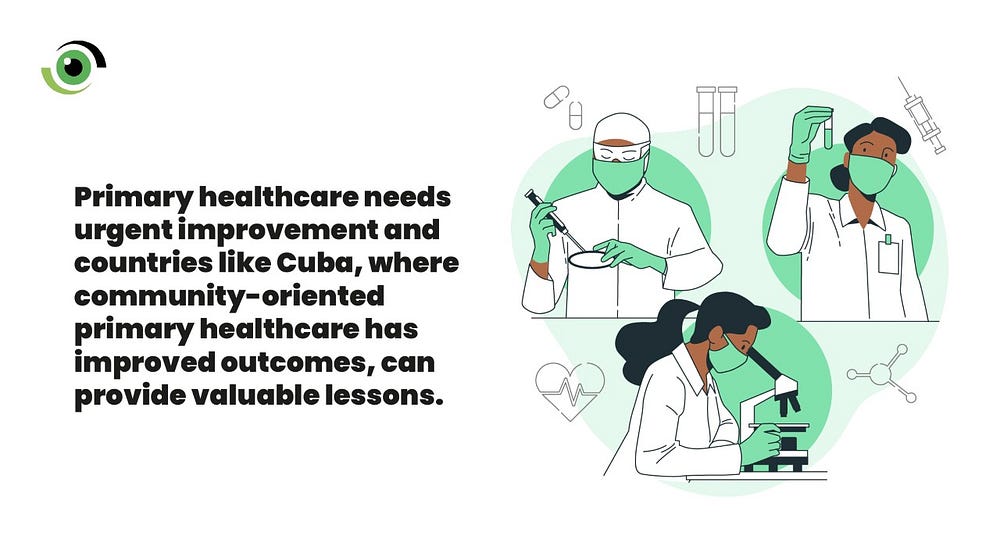
2. Addressing health worker retention
Health professional brain drain is a problem that requires immediate attention. While this is not a new occurrence, the COVID-19 pandemic has accelerated the rate at which health professionals are leaving Nigeria. Unless the “push factors” for health worker migration, career progression, higher remuneration and better quality of life are addressed, retaining health workers will continue to be a challenge, further worsening health outcomes in Nigeria.
According to a national statistical report issued by the UK government in August 2022, 13,609 healthcare professionals left Nigeria for the United Kingdom between 2021 and 2022. Nigeria has one of the largest pools of health workers in Africa and a sizeable capacity for training them, but there are still a lot of gaps. Governments at the federal and state levels should collaborate to establish and implement policies that encourage employee retention through career development assistance. Appropriate compensation should also be considered to limit the rate of the brain drain between rural and urban areas and health workers leaving the country.
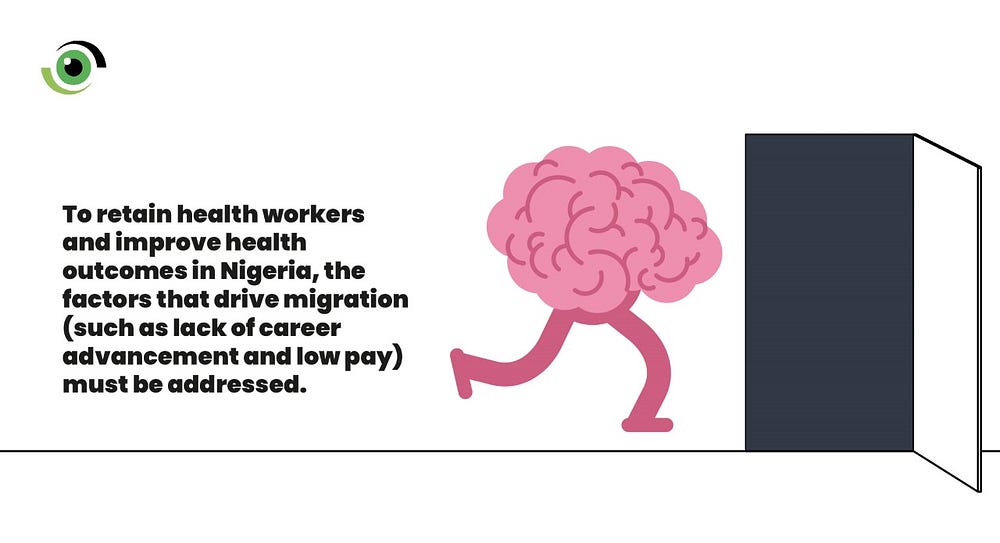
In addition, there are opportunities to leverage the diaspora by implementing policies that lead to a ‘brain gain’, with health professionals in the diaspora playing a more active role in improving access to quality care in Nigeria.
3. Sustaining epidemic preparedness and response efforts
The COVID-19 pandemic brought to the fore the threat we face from infectious disease outbreaks. Prior to the pandemic, efforts to educate our leaders on the threat of infectious diseases were, to some extent, ineffective as an outbreak seemed like a very hypothetical and distant threat. Nigeria is one of only five members of the WHO African Region to record five or more public health incidents annually, with over 20 infectious disease outbreaks and public health crises between 2016 and 2018.
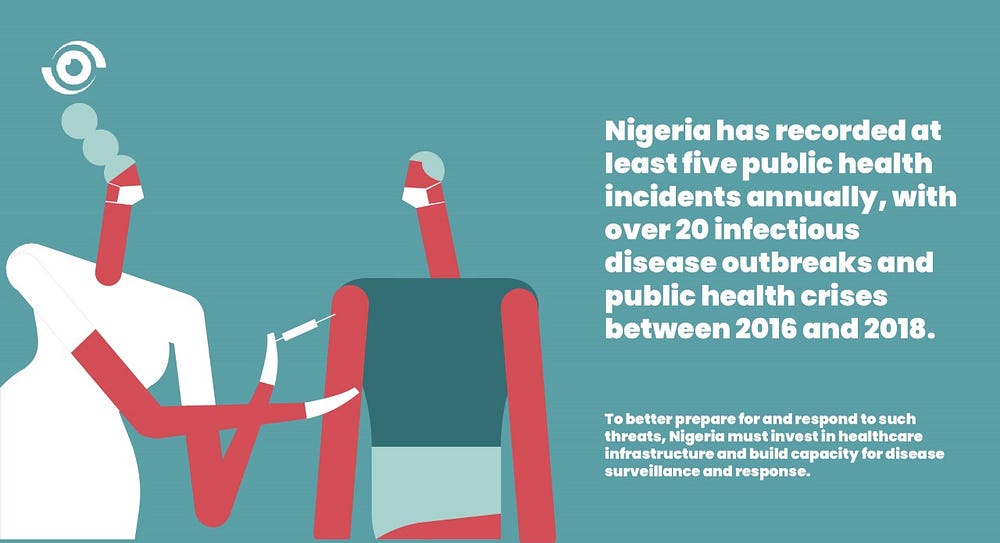
Poor healthcare funding, insufficient diagnostic capacity, political instability, insecurity, and inadequate supply of trained workforce across the country has constrained the country’s ability to effectively respond to infectious diseases.
Sustained and substantial funding that is made available to respond quickly to an infectious disease outbreak is necessary for epidemic preparedness. The COVID-19 epidemic has prompted international initiatives to close financial gaps. The Pandemic Fund, a financial intermediary fund for pandemic prevention, preparedness, and response, was established by the World Bank to increase the capacity of low- and middle-income countries (LMICs) to close critical gaps in their health systems through investments and technical assistance. When allocation modalities are agreed upon, Nigeria should make the most of every opportunity to access these funds.
Furthermore, states must assume greater responsibility for mobilising domestic resources in response to infectious disease outbreaks. At the moment, only Kano and Lagos State have dedicated budget lines for epidemic preparedness and response. States must be pushed harder to take greater responsibility and ownership for their local health security. In addition to funding to sustain Nigeria’s efforts to end mother-to-child transmission of HIV.
4. Ensuring adequate financing for healthcare
A lack of access to high-quality healthcare reduces Nigerians’ quality of life and ability to escape extreme poverty. The fact that successive governments have continuously devoted less than 10% of their budgets to health care puts the country’s chronic underfunding of healthcare at the core of challenges the sector faces, with less than 15% of the national budget being allocated to health.
According to the World Health Organization’s (WHO) most recent statistics from 2019, 71% of health care expenditure in Nigeria is out of pocket. This indicates that the majority of Nigerians lack any form of health insurance, and the poorest Nigerians have very little access to high-quality medical treatment.
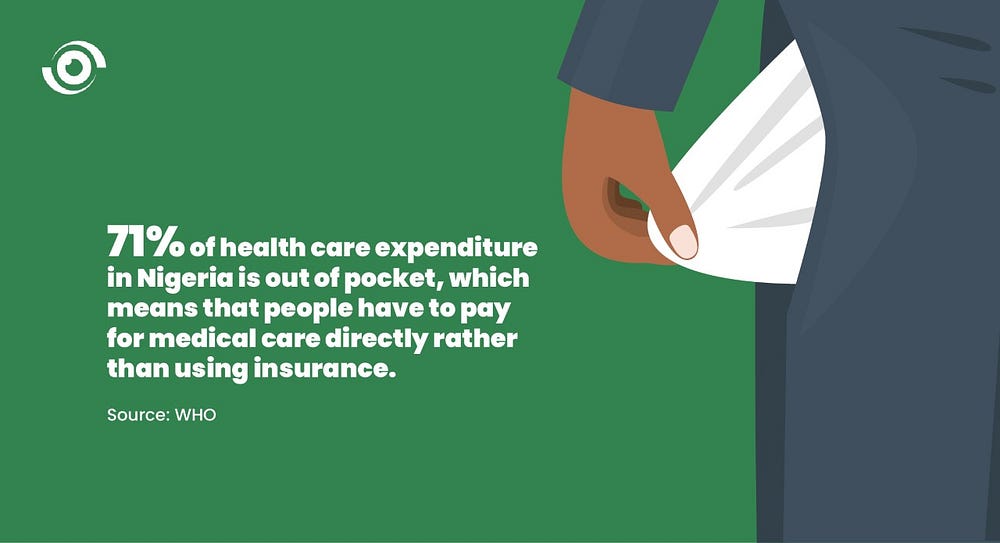
Nigeria Health Watch
Therefore, advocacy should concentrate on raising present healthcare spending in order to satisfy the needs of the Nigerian populace. However, due to the COVID-19 pandemic and the deteriorating macroeconomic environment, there are fewer opportunities for the government to increase its health spending. As a result, various policies have been introduced to mobilise more resources, including the BHCPF and the NHIA Act’s mandated health insurance requirement. To expand the fiscal space, the Finance Act of 2021 was also introduced in early 2022, imposing a ₦10 tax per litre on sugar-sweetened beverages (SSBs).
The drive this year must be for the funds from the SSB tax to be earmarked for health (with a further push to increase the level of SSB tax levied). Funds appropriated and allocated to health must be released. There also needs to be a focused push to ensure that mandatory health insurance is enforced, and enough provision is made for vulnerable groups, supporting their medical needs.
5. Nigeria’s rising population
The global population was projected to reach 8 billion in November 2022. A large portion of Africa’s population growth is attributed to Nigeria, the Democratic Republic of the Congo, Ethiopia, and Egypt. Nigeria is currently the sixth most populous nation in the world, but when its population reaches 450 million by 2050, it will likely surpass the three nations that are currently ahead of it — Pakistan, Indonesia and the United States.
Due to the high infant mortality rate in Nigeria — 67 newborns die for every 1,000 live births — women plan to have more children. The country’s average fertility rate is 5.3 which means that each woman in the nation will give birth to at least five children. With the current infrastructure deficit, the country will have a population that it cannot support if the fertility rate remains constant. Unless the government implements policies and makes investments in employment, health care, and education, Nigeria’s young population might either be a burden or help the nation flourish.
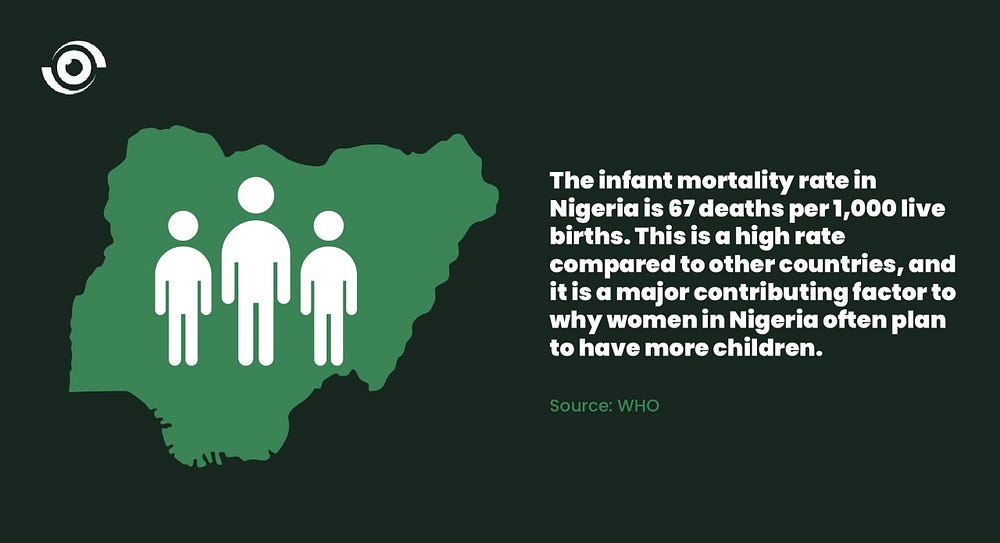
Nigeria must leverage its young population to further its development goals by harnessing the Demographic Dividend (DD) as a way out of the country’s population challenge. Before Nigeria can benefit from the DD, it would need to rapidly reduce its fertility rate in order to allow for a demographic shift that would be adequate to support economic development. If this were to be done, a population age structure with fewer dependents but a large number of productive and working age adults may emerge.
The renewed hopes for a new dawn in our health sector as a result of a change in government, as well as the key areas identified for prioritisation in 2023, are more than just aspirations. They serve as a guideline for some of the changes that must take place to lead Nigeria down a path that will result in tangible improvements in health outcomes for the population.


